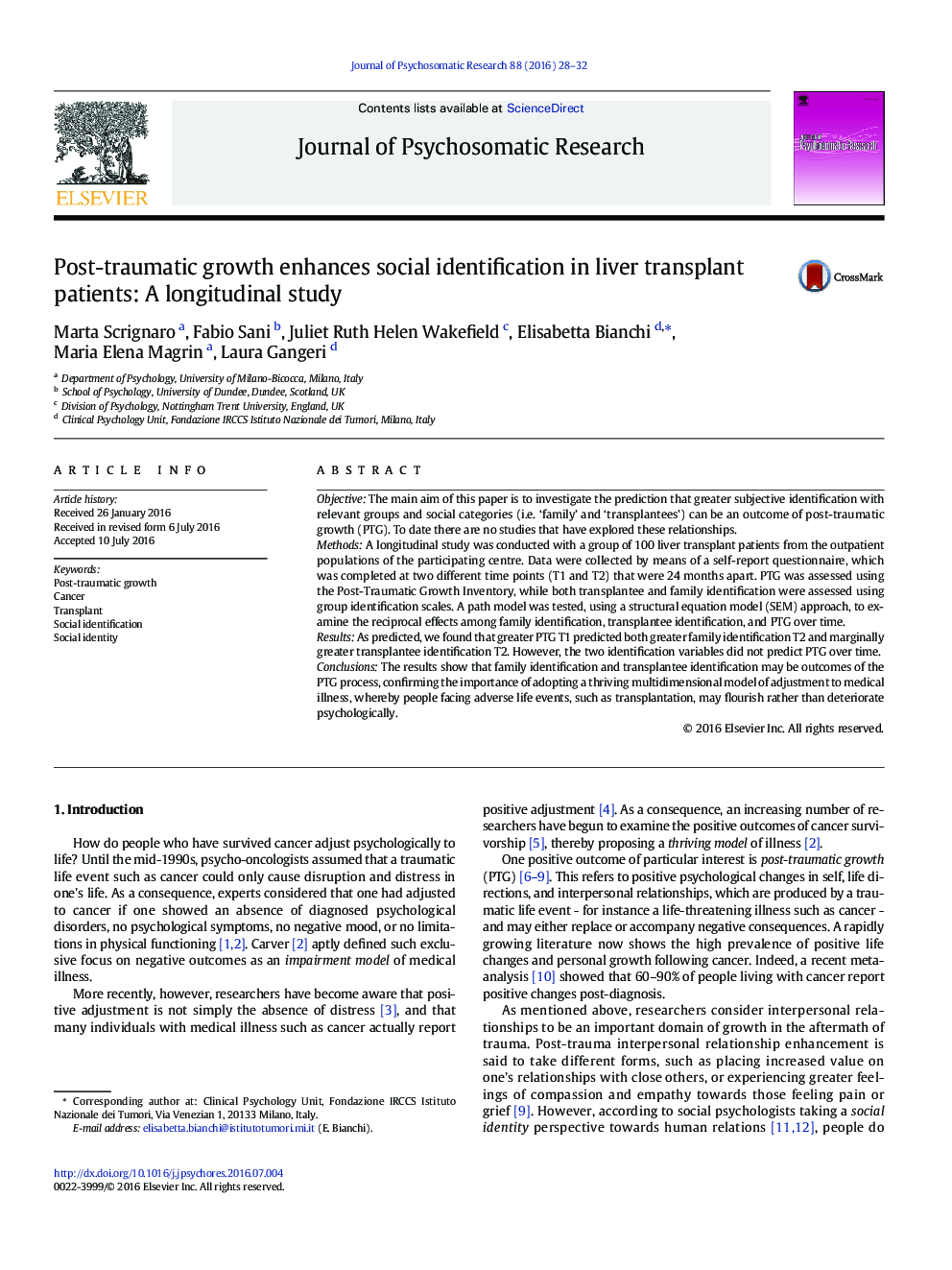| کد مقاله | کد نشریه | سال انتشار | مقاله انگلیسی | نسخه تمام متن |
|---|---|---|---|---|
| 949108 | 1475907 | 2016 | 5 صفحه PDF | دانلود رایگان |
• Research demonstrates that threatening illnesses are often followed by positive life changes and post-traumatic growth (PTG)
• Establishing and reinforcing interpersonal connections is seen as an important domain of growth in the aftermath of trauma
• The present study is the first one to investigate PTG in liver transplant survivors
• This is the first study exploring the influence of PTG on subjective identification with family and transplantees groups
• The longitudinal design of this study allows the assessment of the effects of PTG on social identity over time and vice versa
ObjectiveThe main aim of this paper is to investigate the prediction that greater subjective identification with relevant groups and social categories (i.e. ‘family’ and ‘transplantees’) can be an outcome of post-traumatic growth (PTG). To date there are no studies that have explored these relationships.MethodsA longitudinal study was conducted with a group of 100 liver transplant patients from the outpatient populations of the participating centre. Data were collected by means of a self-report questionnaire, which was completed at two different time points (T1 and T2) that were 24 months apart. PTG was assessed using the Post-Traumatic Growth Inventory, while both transplantee and family identification were assessed using group identification scales. A path model was tested, using a structural equation model (SEM) approach, to examine the reciprocal effects among family identification, transplantee identification, and PTG over time.ResultsAs predicted, we found that greater PTG T1 predicted both greater family identification T2 and marginally greater transplantee identification T2. However, the two identification variables did not predict PTG over time.ConclusionsThe results show that family identification and transplantee identification may be outcomes of the PTG process, confirming the importance of adopting a thriving multidimensional model of adjustment to medical illness, whereby people facing adverse life events, such as transplantation, may flourish rather than deteriorate psychologically.
Journal: Journal of Psychosomatic Research - Volume 88, September 2016, Pages 28–32
